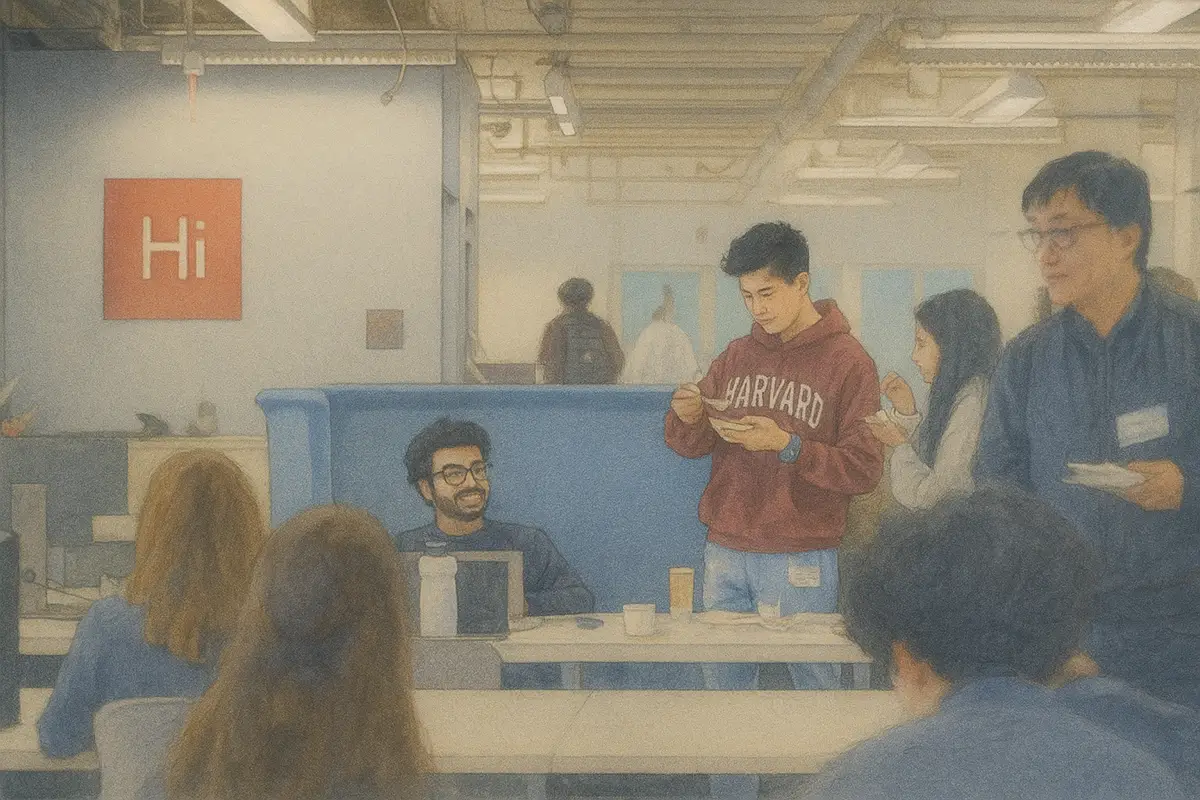Celebrating and learning about those on the frontlines of public service is core to our mission at Roundtable. Roundtable's collaboration platform for government was informed by 300+ interviews with those on the frontlines of issues that impact all of us.

Meet Najee Nunnally, a Community Engagement Specialist with the Metropolitan Area Planning Council (MAPC), a regional planning agency that partners with over 100 cities and towns in the Greater Boston area. For the past 2.5 years, Najee has led work in the Community Engagement department, taking a non-traditional approach to supporting and collaborating with local governments. He is adept at engaging and strategizing at multiple levels. As a Specialist, Najee wears multiple hats, from advocating for language access and equitable community engagement to ensuring that diversity, equity, and inclusion (DEI) are at the forefront of MAPC’s initiatives.
How did you get into this work?
I would attribute it to both my personal and professional experiences. Growing up, I was a competitive swimmer for a period of time as a youth. My family was only one of a few families of color on the Springfield Sharks. When I became an adult, I was a lifeguard and then worked my way up to being the Manager of the City's only free public swimming pool at that time. This role was the introduction to navigating between the institution and community, prioritizing the needs of the people we served. I worked at Framingham Public Schools first as an intern then as Executive Assistant within the Office of Equity, Diversity & Community Development where I was soon promoted as the Diversity & Equity Project Coordinator. My experiences at DCR and in public schools shaped my perspective on keeping the community at the center of my work. I attribute my journey into MAPC (Metropolitan Area Planning Council) due to my experiences at the Department of Conservation and Recreation (DCR), my time in Framingham Public Schools and graduate school. Through DCR and FPS, I gained valuable skills, particularly in navigating relationships with agency representatives while advocating for the community.
What are your key priorities and responsibilities today?
Today, I guide and support projects on the community engagement end. I primarily help municipalities with equity-centered work. Many of the discussions I help facilitate and guide center around diversity, equity, and inclusion (DEI) & equitable community engagement. My main priority is transforming systems to become equitable so that they meet people where they are. I want to ensure community members feel supported, empowered and engaged. That they are able to meaningfully participate and genuinely feel heard especially in planning projects. A significant part of my job is focused on DEI initiatives and equitable community engagement. This involves using diverse strategies to provide opportunities for all community members particularly those who have been historically excluded, underrepresented, or underserved. It is important that they can stay informed and participate in meaningful ways in public planning and decision-making processes to achieve equitable outcomes.
What keeps you motivated, especially when things get tough?
Giving up has never been an option for me. There are people who have not been provided the same level of supports I have received throughout my life. It’s about me leveraging my opportunities and access for marginalized communities to benefit from. I also remind myself that ‘there’s an end goal in all of this. The best is yet to come—you just have to put the time in.’
Any advice for someone looking to follow in your footsteps?
Stay authentic and true to yourself. Move with strategy and courage. Maya Angelou said, ‘Out of all the virtues, courage is the most important.’ In this line of work, specifically in the pursuit of equity and justice, it requires sacrifice. Sometimes you have to speak up about things that may be unpopular in spaces where our common humanity isn’t prioritized or centered. You also have to be prepared. Find your niche and your point of entry. Keep learning—read and be familiar with history on a global and domestic scale, and especially understand the history of your community or the community you are hoping to serve.
How do you prevent burnout in such a demanding field?
I come back to my ‘why'. When I come into a space (particularly in this context, professional), I’m representing everybody who poured into me, and if I don’t do that, it’s a betrayal to them. It can be difficult at times, and I don't consider myself an activist, however, not actively participating and advocating may perpetuate the very harm these systems and structures have caused.
How does Roundtable fit into your work?
Roundtable fits in by supporting the communication of the DEI coalition. The platform takes lengthy email threads and replaces them with a hub for resources, job postings, and discussions. Now, fellow members have support closer to their fingertips than an email thread they have to scramble through. The resource sharing is super helpful, and the platform allows for direct comments and engagement. Roundtable helps facilitate these connections by offering a platform where DEI coordinators across Massachusetts engage, collaborate, and drive initiatives that address critical equity issues in local governments.

Subscribe to our blog today for Roundtable news and product announcements, straight to your inbox.